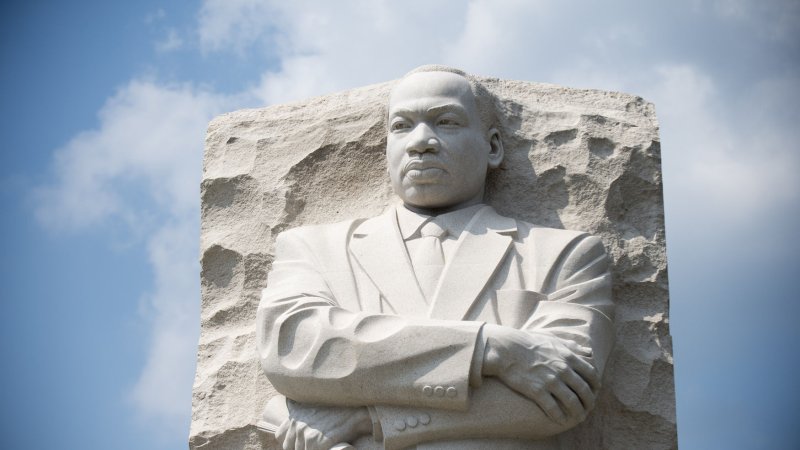WASHINGTON, Aug. 27 (UPI) -- The Rev. Dr. Martin Luther King's "I Have a Dream" speech has had a lasting impact because of the rhetorical and literary devices within it, analysts say.
The speech, delivered 50 years ago on the steps of the Lincoln Memorial, reaches into both the intellect and emotions of Americans, ABC News reported Tuesday.















